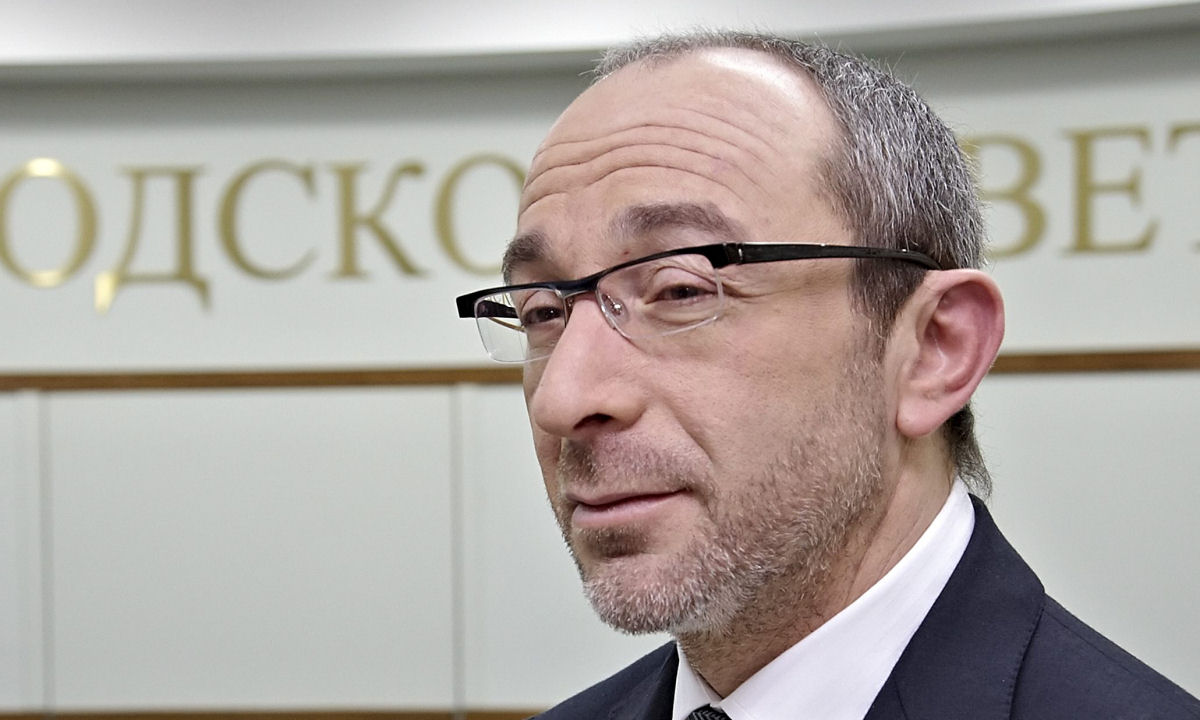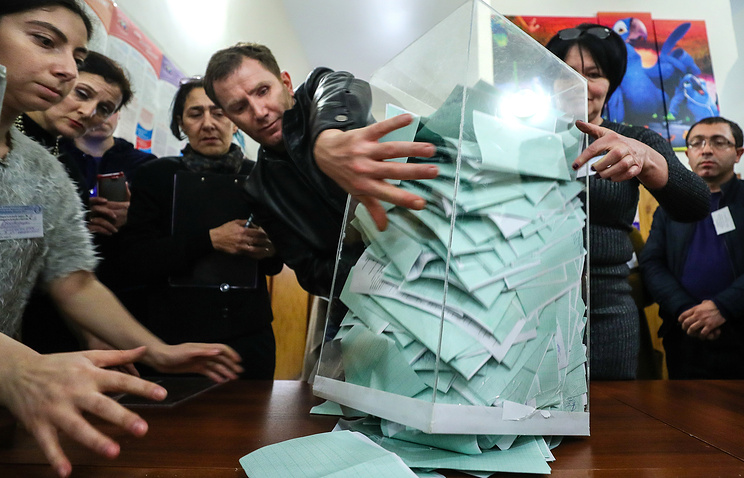The main novelty of the new Electoral Code, adopted in July 2019 and amended last summer, are open party lists and the possibility for voters to choose not only among parties but also among the party's representatives. Theoretically, the reform is designed to widen the scope of voter’s impact and allow voters to form the party list by themselves. Despite some shortcomings in the reform implementation, it is generally one step forward.
According to the estimations of the Ukrainian Committee of Voters (KVU) and Opora — two main NGOs monitoring the elections in Ukraine -- the positive consequences and shortcomings of the reform during these local elections are as follows:
Positive novelties
- Voters can choose not only the party but also determine who should be elected from the party list. That means that party lists are now open, voters see each candidate who can be elected from the party and choose who they think is the most honorable to become their representative.
- The new Electoral Code introduced gender quotas of 30% that should be observed in the party lists.
- Changes to the Criminal Code introduced a stricter criminal penalty for rigging the vote and, at the same time, decriminalized insignificant personal faults by voters that don’t really influence general results.
- The latest amendments to the Electoral Code adopted in the summer of 2020 also lowered the required cash deposits for candidates to participate in local elections to the sums that don’t pose discrimination on a financial basis.
All these changes make for more transparent and more impactful voting.
Shortcomings of the reform that distorted the fair electoral process
1. First, the 2020 summer amendments to the law were partially an attempt by the ruling party to win more local seats. That was done by the introduction of the party-list voting for the small towns or villages, where national parties don’t really matter, unlike the local personalities.
According to the initial version of the code, in the towns and village municipalities with under 90,000 voters, candidates could be independent. It was not necessary to be nominated by a particular party. In June 2020, parliament imposed the norm that all municipalities with over 10,000 voters should now be nominated only by political parties. Only smaller towns retained the possibility to have self-nominated candidates. This forced many local candidates to ally with national parties in order to participate in the elections. In some cases, independent candidates were registered as candidates from the Servant of the People party and then informed about that post factum.
Altogether, this amendment allowed the ruling party to secure more seats in local councils and weakened the independence of these assemblies. Now, the elected representatives can be blackmailed by national party organizations: if a party ejects its representative, he or she automatically loses the mandate.
"The political motivation of some MPs to provide favorable conditions for influential parties in local elections was also obvious [during the voting for the code amendments]. Motivation of this kind was especially evident during the discussion on the application of the proportional electoral system [to small municipaities]," says the Opora report.

Oleksiy Koshel, head of the NGO Committee of voters of Ukraine (KVU) also draws attention to the same problem:
“Parliament did not allow independent candidates to run in these [small] municipalities. That is, neither self-nominees nor self-nominated blocs are allowed. In other words, the code forces local politicians under party banners. In the future, parties will be able to control them, because there is an opportunity to recall deputies of local councils."
2. The second problem was the limited impact of the newly-introduced open party lists. A particular candidate has to get a minimal number of votes in order to move up in the party list. Unless candidates achieve the required number of votes, they retain the place in the list defined by the party.
3. The third problem was excessive party spendings on campaign advertisements. That means local elections were more about political PR rather than about rational political debates. Moreover, this problem minimized the impact of open party lists since the majority of people even didn’t know about particular candidates and had no media or other coverage of political debates to compare the local rivals.
“This is a huge problem also because a lot of advertising in practice requires a lot of money. And new faces – from the expert, journalistic circles, – they simply cannot compete with the moneybag candidates supported by oligarchs or local businesses. For example, the latest financial report of the Opposition Platform for Life for the first quarter of 2020 showed that 95% of funds went to advertising,” says Oleksiy Koshel, head of the Komittee of voters of Ukraine.
Therefore, he believes, it is necessary to introduce strict rules to resolve this issue. For example, no more than 50% of election funds should be spent on advertising by parties.
A new generation of politicians is coming
[boxright]
Ukrainian local elections: Stability of local elites and Zelenskyy’s crushing defeat
[/boxright]
Although the preliminary results
show major support for the parties by local incumbent mayors often connected to local business clans and to some national oligarchic parties, a new generation of young politicians, mostly from the NGO sector is also slowly growing in numbers.
New and often local Ukrainian parties, such as Voice, Power of the People, Democratic Axe, Varta, Ukrainian Galician Party, and others are parties without any business support and big money for advertising. Yet, in many cities, they won 5% and even up to 10% of votes, which means their presence in local councils and at least firm public control over the regional assemblies.
The other important point is that these elections finalize the reform of decentralization. Local village and small towns’ councils obtain more taxes and local councils become more empowered. Many ordinary Ukrainians and civil activists were elected to such councils on Sunday. And although this is a less visible process than elections in the bigger cities, its long-term impact shouldn’t be underestimated.
“Decentralization has made the lowest level [of political system] worth trying [at elections]," explains Ukrainian political scientist Yevhen Hlibovystskyi. "The proportional electoral system with open lists has made elections more competitive and victories achievable even without significant resources. But the main thing is that those who are coming with the changes are no longer Don Quixotes or kamikazes. They go to do their job. They will lack experience, opponents will try to block their activities, but the old system no longer has the ability to throw up roadblocks. It is unable to compete with quality and has lost its mass for quantity.”
Read also:
- Scandalous Ukrainian mayors prepare to win. Again
- Will Zelenskyy aim for even more power via snap local snap elections?
- Ukraine finally gets a new Election Code. It's the first step to an effective political system
- 75% of Ukraine's parliament renewed
- Ukrainian 2019 parliamentary elections: Live updates
- Ukraine votes in second round of presidential elections: live blog
- Ukrainian 2019 presidential elections: Live updates





